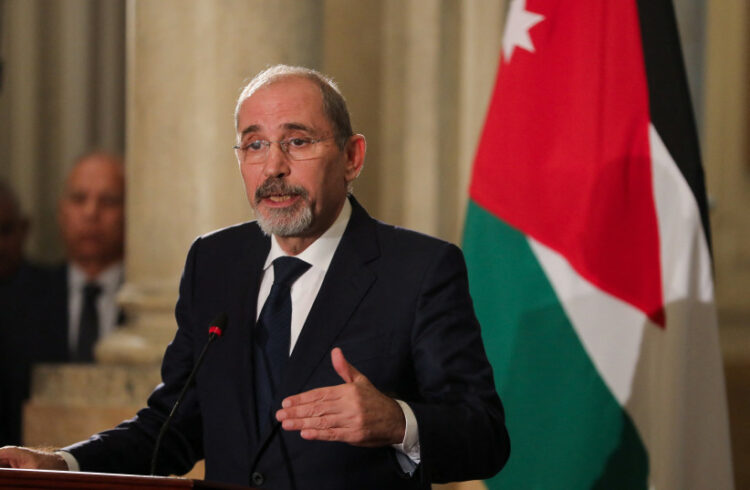Jordanian foreign minister Ayman Safadi told CNN he believes Israeli Prime Minister Benjamin Netanyahu is using the fight with Iran to take attention away from the war on Gaza.
“The Israeli Prime Minister has always wanted to invoke some sort of confrontation with Iran. Now, as the international pressure on Israel to stop the aggression on Gaza continues, invoking a fight with Iran is something that, we believe, he thinks could dilute that pressure, and could take attention away from Gaza,” Safadi told CNN’s Becky Anderson.
“The issue is in Gaza and the West Bank, and our focus needs to continue to be on that because unless we solve that, then the chances for regional escalation will continue,” Safadi said.
Safadi said Jordan will do whatever is within its means to protect the kingdom, explaining why it intercepted some flying objects that entered its airspace Saturday night.
“What we did was consistent with our long-standing policy and any projectiles, drones, whatever that enters our space historically and we’ll continue to deal with it because it poses a threat to Jordan,” Safadi said.
“We are in the range of fire and any missiles or projectile that could fall in Jordan would cause harm to Jordan. So we did what we have to do and let me be very clear. We will do the same regardless of where those drones are from. From Israel, from Iran, from anybody else,” he added.
Key quotes from Safadi:
On how Israel should respond to Iran’s strikes:
“The attack was a retaliation to the Israeli targeting of the Iranian consulate in Damascus. The Iranians said that they’ve done what they needed to do and no more. Now I think the pressure is on Israel not to escalate and work towards the objective that we all share, which is de-escalating the conflict. And the first step towards de-escalation is ending the aggression on Gaza – ending the illegal measures on the West Bank and getting on a track that will produce just and lasting peace on the basis of a two-state solution that we all believe is the only path to peace and security.”
On Jordan’s response to flying objects entering its airspace:
“I consulted with our long-standing policy – any projectiles, drones, whatever that enters our airspace … we’ll continue to deal with it because it poses a threat to Jordan. We are in the range of fire and any missiles or projectile that could fall in Jordan would cause harm to Jordan. So we did what we have to do. And let me be very clear, we will do the same regardless of where those drones are from. From Israel, from Iran, from anybody else. Our priority is to protect Jordan and to protect Jordanian citizens and to do whatever we can against escalation.”
“I think what happened was a sign of how terrible things could be, how dangerous the situation could deteriorate into, unless we deal with the cause of all this tension, which is the Israeli aggression on Gaza and the continued absence of political horizons to solve the conflict as a result of Israeli policies.”
On his belief that Netanyahu wanted a confrontation with Iran:
“The issue here is not Iran, the issue here is the aggression on Gaza… We all want to calm things down, but the first step towards that is ending the aggression.”
“The Israeli Prime Minister has always wanted to invoke some sort of confrontation with Iran. Now, as the international pressure on Israel to stop the aggression on Gaza continues, invoking a fight with Iran is something that, we believe, he thinks could dilute that pressure, and could take attention away from Gaza and focus on this new confrontation.”
“What we tell all our partners, the international community, the issue is in Gaza and the West Bank, and our focus needs to continue to be on that because unless we solve that the chances for regional escalation will continue.”
On whether Jordan would consider cutting ties with Israel:
“It will not happen, simply because we don’t believe that will be helpful to Jordan or to the Palestinians or to the cause of peace which is a necessity for all of us in the region. That said, however, given what Israel is doing, given its killing of political horizons, given the aggression on Gaza, that peace treaty [between Jordan and Israel] is a document collecting dust, because we will not be able to act on many of the opportunities that this treaty should offer to us, to the Palestinians, to the whole region. Public opinion is extremely against any kind of normalization with Israel. Now and again, this is Netanyahu’s doing – not since October 7, but long before October 7, when he publicly said he doesn’t believe in a two-state solution.”










